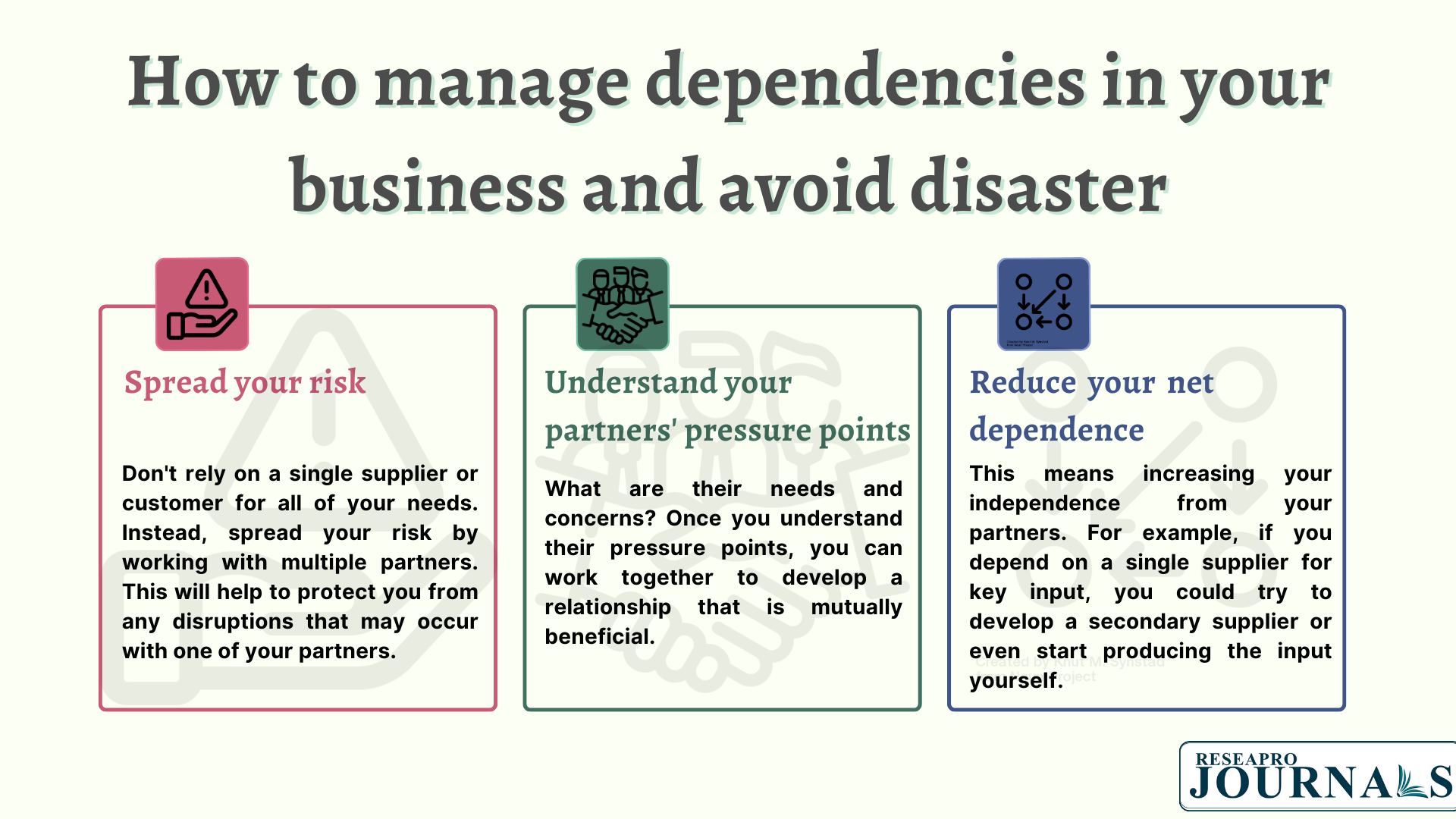Why are dependencies important?
Dependencies are important because they allow businesses to focus on their core competencies and outsource non-core functions to other businesses. This can lead to increased efficiency and cost savings. However, dependencies can also create risks if they are not managed effectively.
What are the risks of dependencies?
There are a number of risks associated with dependencies, including:
- Disruption:┬ĀIf one of your dependencies is disrupted,┬Āit can have a cascading effect on your business.┬ĀFor example,┬Āif a key supplier is unable to deliver on time,┬Āit can cause delays in your production and delivery schedules.
- Price increases:┬ĀIf you are dependent on a single supplier,┬Āthey may be able to charge you higher prices.┬ĀThis can squeeze your margins and make it difficult to compete.
- Quality issues:┬ĀIf you are not careful,┬Āyour dependencies can lead to quality issues.┬ĀFor example,┬Āif you are sourcing products from a low-cost supplier,┬Āthey may use inferior materials or manufacturing processes.
How to manage dependencies effectively
There are a number of things that businesses can do to manage dependencies effectively, including:
- Identify your key dependencies:┬ĀThe first step is to identify your key dependencies.┬ĀThis includes identifying the suppliers,┬Ācustomers,┬Āemployees,┬Āand regulators that your business relies on to operate.
- Assess the risks:┬ĀOnce you have identified your key dependencies,┬Āyou need to assess the risks associated with each one.┬ĀThis includes considering the likelihood and impact of a disruption.
- Develop mitigation strategies:┬ĀOnce you have assessed the risks,┬Āyou need to develop mitigation strategies.┬ĀThis may involve spreading your risk,┬Āunderstanding your partners’ pressure points,┬Āand reducing your net dependence.
Tips for managing dependencies
Here are a few tips for managing dependencies:
- Communicate regularly with your partners.┬ĀThis will help to build trust and understanding,┬Āand it will also make it easier to resolve any issues that may arise.
- Have a backup plan.┬ĀIn case of a disruption,┬Āit is important to have a backup plan in place.┬ĀThis may involve working with multiple suppliers or having in-house capabilities.
- Monitor your dependencies closely.┬ĀIt is important to monitor your dependencies closely and to identify any potential problems early on.┬ĀThis will help you to minimize the impact of any disruptions.
Conclusion
By managing dependencies effectively, businesses can reduce the risks associated with them and improve their overall resilience.




